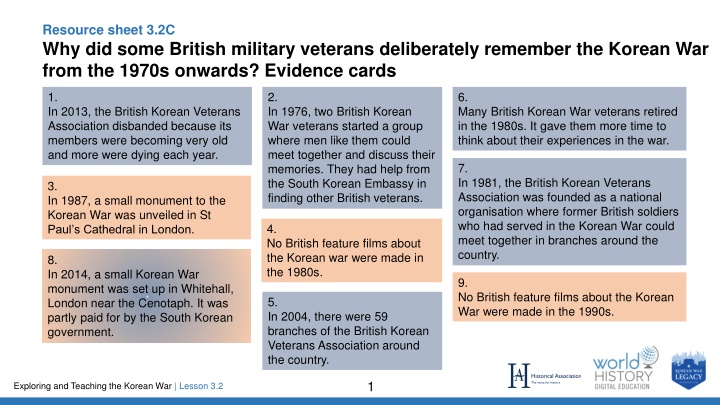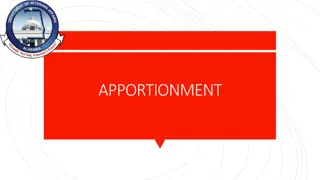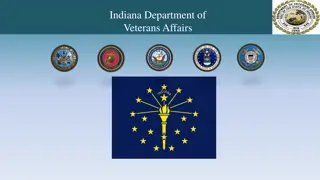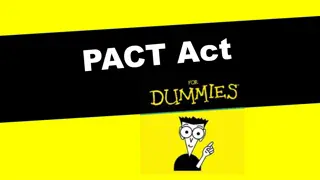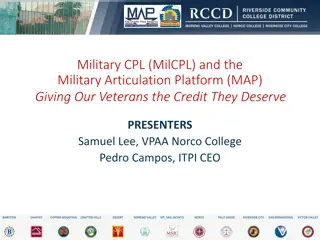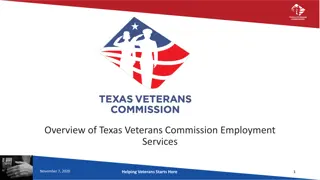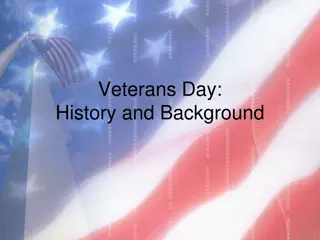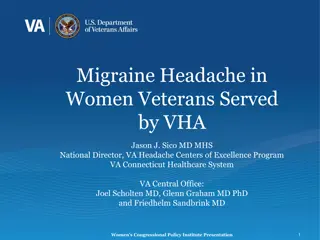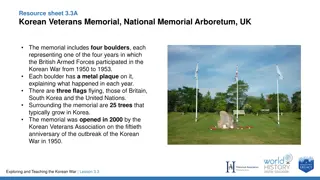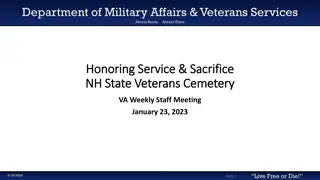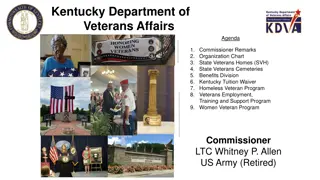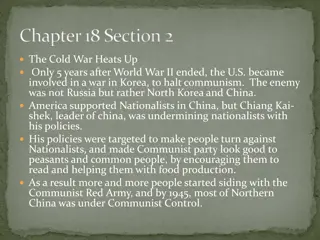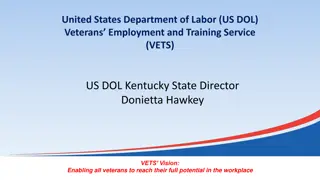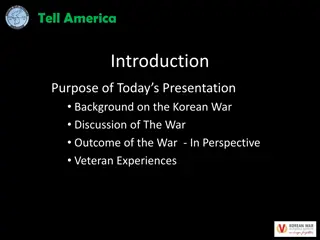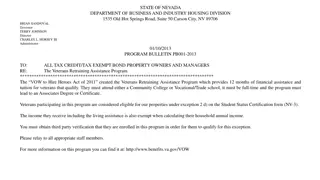British Korean War Veterans' Rememberance Efforts
British military veterans of the Korean War took deliberate steps to remember their experiences from the 1970s onwards. They formed associations, unveiled monuments, and received support from the South Korean government. Over the decades, these veterans reflected on their wartime memories, participated in remembrance services, and contributed to spreading awareness of their involvement in the conflict.
Download Presentation

Please find below an Image/Link to download the presentation.
The content on the website is provided AS IS for your information and personal use only. It may not be sold, licensed, or shared on other websites without obtaining consent from the author.If you encounter any issues during the download, it is possible that the publisher has removed the file from their server.
You are allowed to download the files provided on this website for personal or commercial use, subject to the condition that they are used lawfully. All files are the property of their respective owners.
The content on the website is provided AS IS for your information and personal use only. It may not be sold, licensed, or shared on other websites without obtaining consent from the author.
E N D
Presentation Transcript
Resource sheet 3.2C Why did some British military veterans deliberately remember the Korean War from the 1970s onwards? Evidence cards 2. In 1976, two British Korean War veterans started a group where men like them could meet together and discuss their memories. They had help from the South Korean Embassy in finding other British veterans. In 1987, a small monument to the Korean War was unveiled in St Paul s Cathedral in London. 1. In 2013, the British Korean Veterans Association disbanded because its members were becoming very old and more were dying each year. 6. Many British Korean War veterans retired in the 1980s. It gave them more time to think about their experiences in the war. 7. In 1981, the British Korean Veterans Association was founded as a national organisation where former British soldiers who had served in the Korean War could meet together in branches around the country. 3. 4. No British feature films about the Korean war were made in the 1980s. 8. In 2014, a small Korean War monument was set up in Whitehall, London near the Cenotaph. It was partly paid for by the South Korean government. 9. No British feature films about the Korean War were made in the 1990s. 5. In 2004, there were 59 branches of the British Korean Veterans Association around the country. 1 Exploring and Teaching the Korean War | Lesson 3.2
10. In 1982, Argentina invaded and occupied the British Falkland Islands in the South Atlantic (North Korea also invaded South Korea without warning in 1950). British prime minister Margaret Thatcher fought a war to recapture the islands. She never made comparisons between the Falklands War and Britain s involvement in the Korean War, resisting aggression by one country against another. 11. From the late 1980s onwards, the South Korean government (grateful to international veterans for fighting to keep their country free from communist control between 1950 and 1953) paid for some British veterans to visit Korea. Veterans saw the places in which they had fought, paid tribute to dead comrades and noticed how rich and democratic South Korea had become. Many veterans were deeply moved by how grateful South Koreans appeared to be it made what they had suffered seem more worthwhile. 12. In 2003, on the fiftieth anniversary of the end of the Korean War, the Queen went to a remembrance service at Westminster Abbey in London, attended by veterans. 13. No British feature films about the Korean War were made between 2000 and 2010. 2 2 Exploring and Teaching the Korean War | Lesson 3.2
14. In 2013, veterans of the Korean War were asked to march past the Cenotaph in Whitehall (the national memorial to British soldiers who died during the First World War) on Remembrance Sunday in November for the first time. This was partly because there were few veterans of the Second World War left to do it and hardly any First World War veterans left at all. 15. From the 1980s onwards, national museums like the Imperial War Museum interviewed Korean War veterans about their experiences before they died. This helped some of them to come to terms with their experiences. 18. In 1988, BBC and Channel 4 showed documentaries about British involvement in the Korean War for the first time. Not many people watched them compared to documentaries about the First and Second World Wars. 16. No British feature films about the Korean War were made between 2010 and 2020. 19. From the late 1980s, a few veterans wrote and published memoirs describing their Korean War experiences. This helped to spread knowledge about British involvement in the war. 17. In 2000, on the fiftieth anniversary of the outbreak of the Korean War, the British Korean Veterans Association set up a national memorial to those soldiers who served and died in Korea at the National Memorial Arboretum in Staffordshire. 3 Exploring and Teaching the Korean War | Lesson 3.2
20. In 1990, Iraq invaded and occupied Kuwait in the Middle East (North Korea also invaded South Korea without warning in 1950). In 1991, British forces helped the United States to drive out the Iraqis in what was called the Gulf War. British prime minister John Major never mentioned any comparisons between the Gulf War and Britain s involvement in the Korean War in resisting aggression by one country against another. 21. On the sixtieth anniversary of the end of the Korean War, in July 2013, around 300 British Korean War veterans paraded past the Cenotaph (the British memorial to the dead of the First World War) in London. They attended a national service of remembrance at Westminster Abbey, along with British government ministers and members of the Royal Family. These events and details of the Korean War appeared in British news reports. 4 Exploring and Teaching the Korean War | Lesson 3.2
